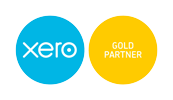
The end of the financial year can feel like a blur of papers, numbers and money, that’s not even considering what we have just been through (and to be honest will be going through for quite some time!).
The end of the financial year can feel like a blur of papers, numbers and money, that’s not even considering what we have just been through (and to be honest will be going through for quite some time!).
However more than ever it’s time to push on. With 30 June now out of the way, it's time to concentrate on the year ahead. While there are a myriad of possible resolutions you can make for your business, one that makes the most sense right now is to reflect (let’s face it we have been through a lot this year).
Make a note of your 2020 achievements, and the challenges faced, particularly noting the ones that still require your attention to overcome.
If you were not happy with your results this year, then there’s even more reason to reflect on what didn’t work. By carefully analysing your results you can isolate each area and work out what needs improving.
From here – we build! Put together a business plan for 2021 year. In fact given COVID-19 and the challenges still to come, we are suggesting a number of business plans should be developed to ensure you have the information to make quick decisions to address the potential of a rapidly changing business environment.
The benefits of having a business plan are significant, particularly in giving you a clear vision of where you are heading and how you are going to get there. Even if you are already working to an established business plan, now is a good time to review and revise this plan for the new financial year.
In our experience with small to medium businesses, we’ve found that there are several key strategies for businesses to start fresh in the new financial year. These are:
- Create a financial growth strategy – understand and set Key Performance Indicators (KPIs) and business performance drivers. Use these as a framework to work against over the next year to boost the growth, performance and success of your business.
- Increase marketing and initiative-based expenses (investments). Marketing is the key driver in growing your business and securing future sales, revenue and cash flow.
- Reduce non-marketing and non-production expenditure. Ask for better deals from suppliers, and reduce the high value expense items, whose absence doesn’t disrupt the business.
- Collect from debtors as soon as possible. You don’t have to do what everyone else is doing and carry out work on account. You are entitled to ask for payment on completion, or even in advance.
- Get rid of your obsolete and surplus stock or in a service based business, your Work in Progress (WIP) as quickly as possible. Converting your stock/WIP to cash will again free up money available to you in your business.
- Build a strong relationship with your accountant – who has all the information about your business and is someone you can share your business goals with and help you make the right business strategy decisions based on those goals. If this is us, than nothing excites us more than sharing your journey with you. Your accountant has the knowledge and skill set to push and guide you through even the most difficult environments.
- Maintain strong relationships with your suppliers and customers.
Remember the point of planning and knowing your numbers is to know your business on a more intimate level. This will lead you to making better decisions faster, enabling you to promptly act to any changing business environment and eventually, lead to you realizing the rewards of a highly successful business – your own definition of success.
Craig Hailston – Accountant, Business Advisor, SMSF Specialist and



